Lin Thompson (they/them) is a queer author of books for middle-grade readers. Lin grew up playing pretend games in the backyard and basement of their home in Kentucky. Now they get to write pretend stories in the backyard and basement of their home in Des Moines, IA, where they live with their wife and cat.
I had the opportunity to interview Lin once again, which you can read below.
First of all, welcome back to Geeks OUT! How have you been and could you tell us a little about yourself to readers who haven’t met you yet?
Thanks for having me, I’m very excited to be back! I’m a trans author of two books for middle-grade readers: The Best Liars in Riverview (out last year) and The House That Whispers (which just came out in February!). I grew up in Kentucky and love to write stories about queer kids growing up and figuring themselves out.
What can you tell us about your latest book, The House That Whispers? What was the inspiration for this story?
The House That Whispers is about an eleven-year-old trans kid named Simon and his two sisters as spend a week in their grandmother’s house—but when Simon starts sensing a ghostly presence there, his hunt for the ghost turns up more feelings and family secrets than he’d anticipated. I knew fairly early on that I wanted to write about a trans kid who starts the story knowing who he is, even if no one else in his life does yet. And I had a pretty good sense of Simon’s character and of the emotional arc I wanted for him. But if I’m honest, what inspired me to make this book a ghost story was watching The Haunting of Hill House on Netflix. I love how the show uses horror elements to explore the characters’ emotional journeys, and I started thinking about how I could use some of the classic ingredients of a haunted house story to draw out this internal journey I was imagining for Simon and bring it out into his world.
As a writer, what drew you to the art of storytelling, specifically middle grade fiction?
I’ve wanted to be a writer for longer than I can remember—storytelling is just something I’ve always loved. Even when I wasn’t reading or writing as a kid, I was always playing pretend games or making up stories with dolls or stuffed animals. I love writing for middle-grade specifically because it’s such a formative time in developing your worldview and starting to understand more of the world outside yourself. I probably read more at that age than I have at any other point in my life, and so many of the books I read back then have stuck with me, in big ways and small.
How would you describe your writing process?
Somehow both very organized and very chaotic at the same time. I almost never write or revise in order—I’m always jumping around depending on which scene is caught in my head that day or which scene has gotten me stuck. I love being able to just follow where my interest takes me. But it also means I have to have a very solid sense of the plot and structure before I can get very far into working on a story. I love making outlines and beat sheets and lists of scenes—even when those lists inevitably change about a hundred times through the process.
Many authors would say one of the most challenging parts of writing a book is finishing one. What strategies would you say helped you accomplish this??
I definitely understand that challenge—even though I’ve been writing for my whole life, my debut was only the second book I’d ever actually finished, and it took me years and years to even get a first draft done. But I think the biggest help for me is having external accountability—someone besides just me to push me and ask when the book will be ready, haha. The House That Whispers is the first book I’ve written under contract with a publisher, and it made a huge difference to have that official deadline and to be able to work with my editor throughout the process. (To compare with that years-long timeline from my first book, this one went from an idea to a draft to a fully revised manuscript in less than a year total.)
But that external accountability doesn’t have to be an agent or editor or anything official—it can be a friend, or a beta reader, or a made-up deadline you’ve set for yourself and told your friends to hold you to. I might never have finally finished that first book if I didn’t have my amazing writing group to help push me. Writing is such a solitary activity, but it can be hugely helpful to have a community of other writers where you can all cheer each other on.
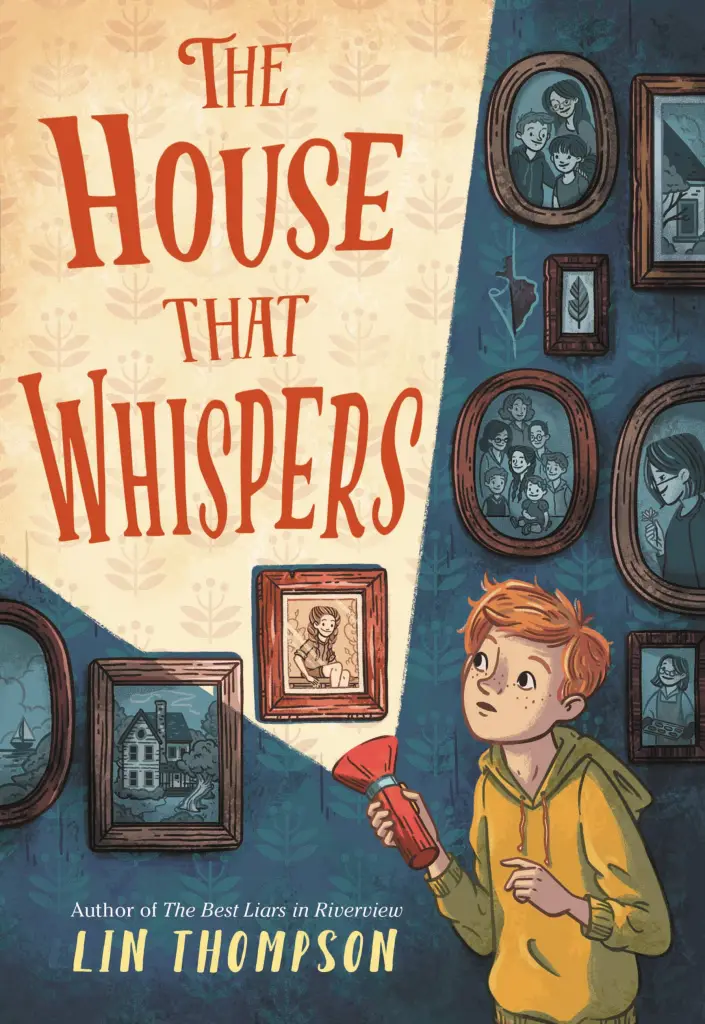
Growing up, were there any stories in which you felt touched by/ or reflected in? Are there any like that now?
There were definitely books that I connected with as a kid, but I don’t remember reading a book with a specifically queer character until I was well into college. Instead, queer fanfiction sort of filled that role for me, and had a big hand in helping me realize that I was queer. There were so many amazing queer creators writing these beautiful, nuanced explorations of identity in ways I’d never seen before, and that helped me see myself reflected in ways I hadn’t even known to look for yet.
And now, even just within middle-grade, there are so many books coming out that would have totally changed my life if I’d had them as a kid. I cried more than once reading Kyle Lukoff’s Too Bright To See because of how closely the narrator’s experience of gender mirrored my own in younger years, before I had the words for what I was experiencing. And Nicole Melleby’s In the Role of Brie Hutchens explores what it’s like to be a queer kid raised in a very Catholic environment in a beautiful, funny way that hit me really hard.
As a writer, who or what would you say are some of your greatest creative influences and/or sources of inspiration in general?
I love to branch out into other creative projects when I hit a writing block—baking, painting, doing embroidery. All of it feels so much better than just staring at a blank page feeling bad about myself, and having other hobbies can really help refill my creative well. My latest project is historical fiction, so sometimes when I’m stuck on something in it I’ll give myself permission to just poke around through the research and go down all kinds of rabbit-holes into weird and interesting parts of history, and see what sticks.
What are some of your favorite elements of writing? What do you consider some of the most frustrating and/or challenging?
My absolute favorite feeling when I’m writing is when I know something in the plot isn’t working but I’m totally stuck on how to fix it—and it’s incredibly frustrating, and I’m sure there’s no solution. And then finally, I find some piece of the story that I’ve been assuming has to be a certain way, and I realize that it doesn’t, actually, and I can just change it to fix the problem. Because it’s all made up. Which sounds so obvious, and yet somehow I forget that every time! But I made the whole story up in the first place, and I can adjust whatever I need to, and it’s empowering and terrifying at the same time. I always feel like I’m breaking the book when I make changes like that, but I love the feeling of getting to put it back together better.
Aside from your work, what are some things you would want others to know about you?
I have a cat who’s very cuddly and too smart for her own good and is absolutely perfect. I really enjoy studying old maps and am slightly obsessed with historic sailing ships. And this last one is a little bit of a brag but—like Simon in The House That Whispers, I am also very good at Tetris.
What’s a question you haven’t been asked yet but that you wish you were asked (as well as the answer to that question)?
Have you ever lived in a haunted house? Which, I don’t think so, but my old high school was definitely haunted, and the teachers had all kinds of stories, and sometimes for drama club we had to store props in the haunted section of the third floor and it was terrifying.
What advice might you have to give for other aspiring writers?
Figure out the writing process that works for you! Everyone’s brain is different and no one’s creative process is going to look exactly the same, so don’t be afraid to experiment with different strategies and approaches and see what feels right for you.
Are there any other projects you are working on and at liberty to speak about?
I’m still in the very early brainstorming stages for my next middle-grade book. In the meantime, though, I’ve been working on a YA historical fantasy that’s very, very queer, which has been a really fun challenge and something I’m really excited about!
Finally, what LGBTQ+ books/authors would you recommend to the readers of Geeks OUT?
In middle-grade, I loved Camp QUILTBAG by Nicole Melleby and A.J. Sass. In YA, I’m super excited for Jen St. Jude’s If Tomorrow Doesn’t Come (I got to read an older draft of it and was fully bawling in the most beautiful, cathartic way). Others I’ve loved lately include We Deserve Monuments by Jas Hammonds, When The Angels Left the Old Country by Sacha Lamb, and The Sunbearer Trials by Aiden Thomas.
Header Photo Credit Katherine Ouellette

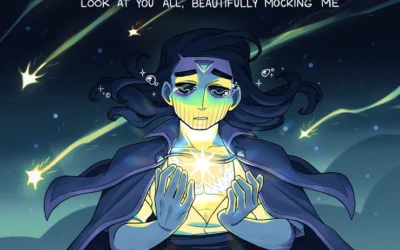
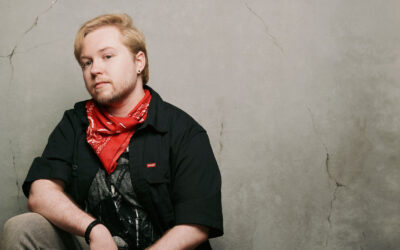
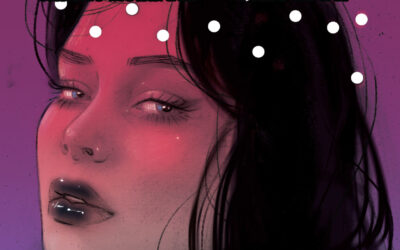
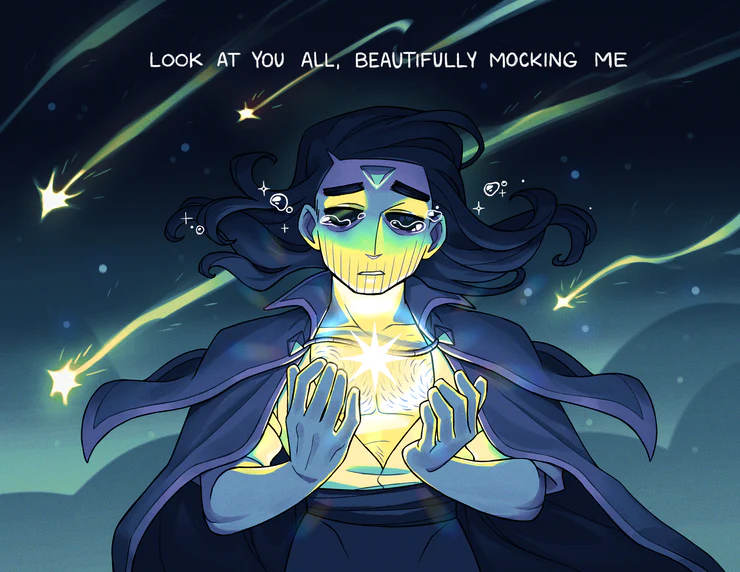
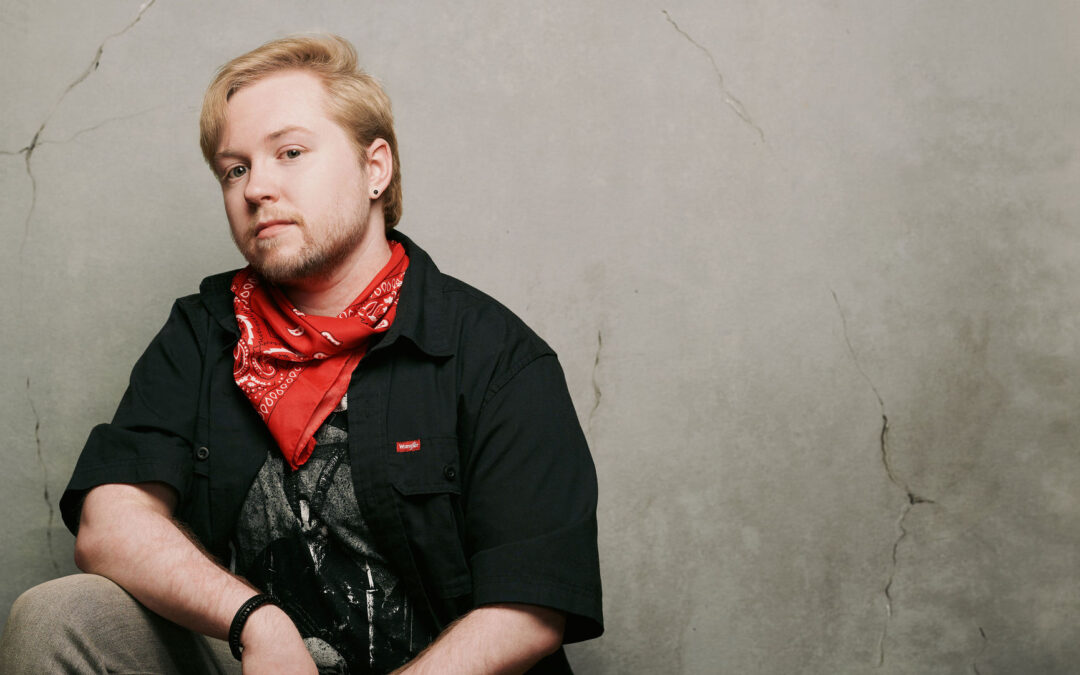
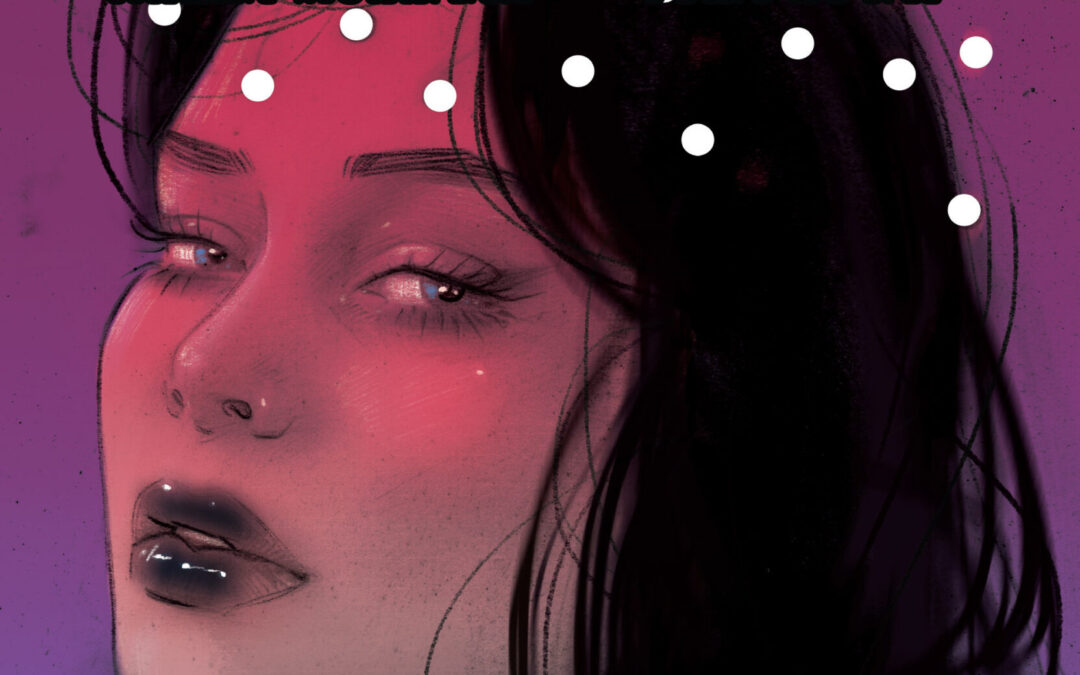
0 Comments